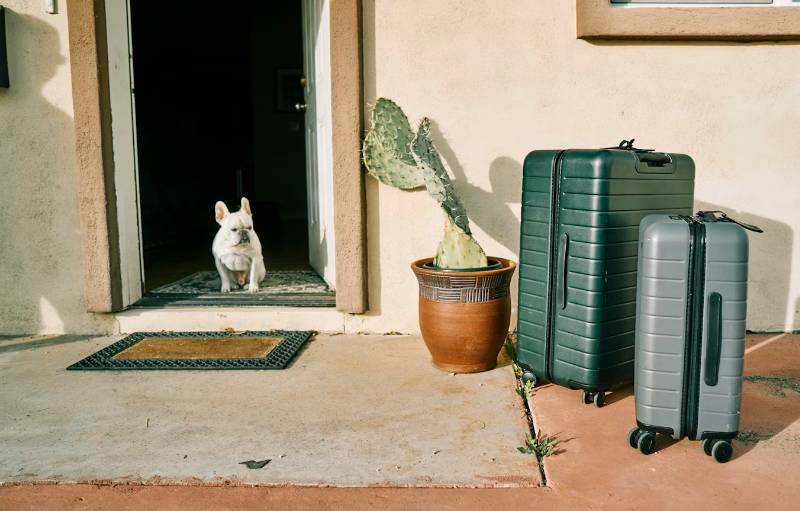- Region
- Águilas
- Alhama de Murcia
- Jumilla
- Lorca
- Los Alcázares
- Mazarrón
- San Javier
-
ALL AREAS & TOWNS
- AREAS
- SOUTH WEST
- MAR MENOR
- MURCIA CITY & CENTRAL
- NORTH & NORTH WEST
- TOWNS
- Abanilla
- Abarán
- Aguilas
- Alamillo
- Alcantarilla
- Aledo
- Alhama de Murcia
- Archena
- Balsicas
- Blanca
- Bolnuevo
- Bullas
- Cañadas del Romero
- Cabo de Palos
- Calasparra
- Camping Bolnuevo
- Campo De Ricote
- Camposol
- Canada De La Lena
- Caravaca de la Cruz
- Cartagena
- Cehegin
- Ceuti
- Cieza
- Condado de Alhama
- Corvera
- Costa Cálida
- Cuevas De Almanzora
- Cuevas de Reyllo
- El Carmoli
- El Mojon
- El Molino (Puerto Lumbreras)
- El Pareton / Cantareros
- El Raso
- El Valle Golf Resort
- Fortuna
- Fuente Alamo
- Hacienda del Alamo Golf Resort
- Hacienda Riquelme Golf Resort
- Isla Plana
- Islas Menores & Mar de Cristal
- Jumilla
- La Azohia
- La Charca
- La Manga Club
- La Manga del Mar Menor
- La Pinilla
- La Puebla
- La Torre
- La Torre Golf Resort
- La Unión
- Las Palas
- Las Ramblas
- Las Ramblas Golf
- Las Torres de Cotillas
- Leiva
- Librilla
- Lo Pagan
- Lo Santiago
- Lorca
- Lorquí
- Los Alcázares
- Los Balcones
- Los Belones
- Los Canovas
- Los Nietos
- Los Perez (Tallante)
- Los Urrutias
- Los Ventorrillos
- Mar De Cristal
- Mar Menor
- Mar Menor Golf Resort
- Mazarrón
- Mazarrón Country Club
- Molina de Segura
- Moratalla
- Mula
- Murcia City
- Murcia Property
- Pareton
- Peraleja Golf Resort
- Perin
- Pilar de la Horadada
- Pinar de Campoverde
- Pinoso
- Playa Honda
- Playa Honda / Playa Paraíso
- Pliego
- Portmán
- Pozo Estrecho
- Puerto de Mazarrón
- Puerto Lumbreras
- Puntas De Calnegre
- Region of Murcia
- Ricote
- Roda Golf Resort
- Roldan
- Roldan and Lo Ferro
- San Javier
- San Pedro del Pinatar
- Santiago de la Ribera
- Sierra Espuña
- Sucina
- Tallante
- Terrazas de la Torre Golf Resort
- Torre Pacheco
- Totana
- What's On Weekly Bulletin
- Yecla


- EDITIONS:
 Spanish News Today
Spanish News Today
 Alicante Today
Alicante Today
 Andalucia Today
Andalucia Today
article_detail
Taking a pet to Spain: Rules and costs for bringing a dog or cat to Spain
The price and logistics will depend largely on whether you’re arriving in Spain from an EU or non-EU country

Image: Unsplash
Are you planning a move to Spain? Or maybe you’re coming here on holiday but would like to bring your pet along? Any trip is sure to be enhanced by having your canine or feline companion along for the ride, but it’s important to be aware of the rules and requirements to ensure a smooth journey for you and your four-legged friend.
Let’s go through the essentials step by step, with information courtesy of Global Relocation - Spain, the experts in removals and moving services, including moving pets abroad and dealing with all the paperwork.
Pet travel rules in a nutshell
First, it’s important to understand the difference between pet travel and commercial travel. If you’re travelling with five or fewer pets (‘pets’ refers to dogs, cats and ferrets), and they are not for commercial purposes or transfer of ownership, it is considered pet travel.
Your pet must be accompanied by you or someone responsible for them, either on the same transport or within five days of your trip.
Bringing your pet to Spain from an EU country
In general, to bring your cat, dog or ferret into Spain, it must:
- Be at least 15 weeks old, and the rabies vaccine must have been administered at least 21 days before travel.
- Be identified with a microchip. ID tattoos are allowed if they were done before July 2011, but they must be legible.
- Have a European passport for the movement of pets. The sections “Owner”, “Animal description”, “Marking”, “Issuance of passport” and “Rabies vaccination” must be completed.
- The sections Serological test, Treatment against ticks, Treatment against Echinococcus, Other vaccinations, Clinical examination, Legalization and Others are not mandatory for movements from other EU Member States to Spain.
It’s worth noting that several countries (Andorra, Switzerland, Faroe Islands, Gibraltar, Greenland, Liechtenstein, Monaco, Norway, San Marino, Vatican City, Iceland and Northern Ireland) are considered equivalent to the European Union in health terms, so entry into the EU from any of these countries is considered an intra-community movement.
This agreement is in line with Part I of Annex II of R (EU) 577/2013.
Bringing a pet to Spain from a non-EU country for the first time
To move your pet to Spain from Britain or another country outside of the EU, such as the United Kingdom or United States, you must bring your pet through one of the designated Entry Points (December 4, 2023) for travellers, and declare to the Tax Office of the Guardia Civil that you are travelling with a pet, presenting all the necessary the documentation for the animal.
In cases where a European passport is not available for the movement of pets, the animals must be accompanied by:
- A zoosanitary certificate, which must be signed by an official veterinarian of the third country and submitted in Spanish.
- A declaration form.
- Certified copy of the identification and vaccination data of the animal(s).
You can find templates for all of these certificates here.
In addition, your pet must:
- Be identified with a microchip or tattoo (if done before 03/07/2011 and still legible).
- Be vaccinated against rabies with a vaccine valid at the time of travel.
- If you come from a country not listed in Annex II of Regulation (EU) 577/2013, have undergone a serological test against rabies in an authorised laboratory (more on this below).
Returning your pet to Spain after visiting a non-EU country
When returning to Spain after a trip, the animal and all of its documents must again be declared, as above.
If you are travelling to a country not listed in Annex II (a country at risk of rabies), there are some additional considerations:
- Your pet must undergo a serological test for rabies at an authorised laboratory before travelling.
- The result of this test will be reflected by your veterinarian in the passport and must be equal to or greater than 0.5 IU/ml.
- At least 30 days after vaccination against rabies (in the case of primary vaccination) a blood sample must be taken from the animal to verify that the level of post-vaccination antibodies is sufficient, that is, equal to or greater than 0.5 IU/ml.
- The entry of the animal will only be authorised after 3 months (see frequently asked questions ) from the date of the blood sample.
- Therefore, the minimum age of an animal coming from a country with a risk of rabies will be 7 months.
With regular boosters, the serological test will be valid throughout the life of the animal.
How much does all of this cost?
The costs associated with preparing your pet for travel to Spain can vary widely depending on your country of origin, but here is a general guideline to give you an idea:
- Microchipping usually costs around 20 euros.
- Rabies vaccination is mandatory for entry into Spain. If it's your pet's first vaccination, allow for 21 days before travel. A booster shot may be given on the same day of travel. The cost of vaccination can range from 25 euros to 100 euros, depending on your veterinarian.
- If you're arriving from a non-EU country, you'll need a health certificate and declaration form for your pet. A visit to your vet for these documents can cost anywhere from 20 euros to 100 euros.
- As for the EU pet passport, the cost will depend on the expenses of the above-mentioned documents, ranging from 20 euros to 448 euros.
- Travelling by ferry? Your pet will be considered a car passenger. Opting for air travel? Expect to pay approximately 40 euros-120 euros per pet, although prices vary across airlines.
- If you prefer a pet transportation company to handle the travel arrangements and administrative tasks like passports, vaccination and health certificates, fees typically start from 300 euros and can go up to 3,000 euros or more, depending on the specifics.
The list of requirements for travelling with your beloved pets definitely isn’t a short one, but the end result is absolutely worth it. Remember, most registered vets in the UK and the EU are very familiar with the rules, and they’ll be more than happy to guide your through the process so that you and your furry friend can make the most of your time in Spain.
Alternatively, you can let Global handle the whole process for you. Just use the contact details below to get a FREE, no obligation quote for moving your pet overseas:








